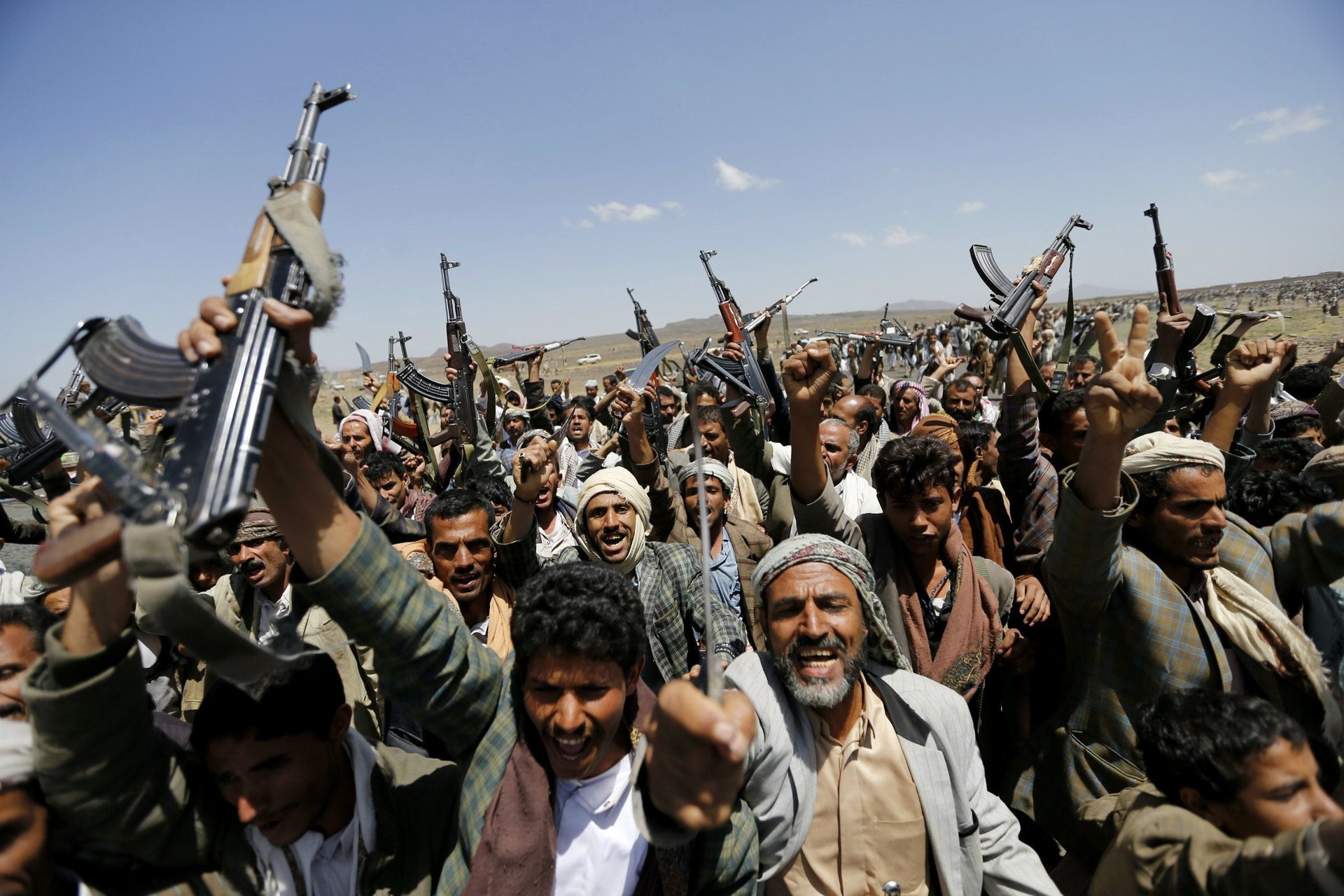Yemen’s Houthis are a reminder of Iran’s sectarian agenda in the Arab world
On the same day that US president Barack Obama warned Congress not to push for more sanctions against Iran, the regime in Tehran demonstrated why its threat to the world is not limited to nuclear weapons.


On the same day that US president Barack Obama warned Congress not to push for more sanctions against Iran, the regime in Tehran demonstrated why its threat to the world is not limited to nuclear weapons.
The Houthi insurgents who have run amok in the Yemeni capital Sana’a have been backed with weapons, money, and training by Iran. To what end? Yemen, one of the world’s poorest nations, is no glittering prize for Tehran. Nor does it represent any direct threat to Iran.
But the Houthis have one important thing in common with the Iranian regime: Shi’ism. And if the insurgents manage to extend their hold over Yemen, it will be a poke in the eye to Saudi Arabia, Iran’s main Sunni rival in a widening sectarian rift across the Muslim world.
Saudi Arabia has a long border with Yemen, and views the Houthi ascendancy with growing alarm. If the government of president Abd Rabbuh Mansur Hadi is unable to reassert its control over the country, the Saudis will likely be compelled to intervene in the conflict—and it’s hard to imagine any good coming of that.
(There were two other reminders in the past few days of Tehran’s dangerous ambitions: An Iranian general was among those killed in an Israeli strike against the terrorist group Hezbollah, in Lebanon; and in Buenos Aires, a prosecutor about to present evidence of Iran’s involvement in the 1994 bombing of a Jewish center was mysteriously murdered. Meanwhile, Tehran continues to train and arm Shi’ite militias in Iraq.)
All of this is good news for Al Qaeda in the Arabian Peninsula, or AQAP, the Yemeni franchise of the terrorist group. AQAP has claimed responsibility for the terrorist attack in Paris, and has for years been regarded by US military and intelligence as the Al Qaeda’s most dangerous affiliate.
The Houthi insurgency has distracted Hadi’s government from the fight against AQAP. Less than three years ago, Yemeni forces—backed by American drones and cruise missiles—seemed to be pushing AQAP back, regaining territory lost to the terrorists, and winning kudos from the US. Now, Hadi is in a fight for his own survival, and can’t pay much attention to AQAP.
Besides, the combination of Iran’s backing of the Houthis and Obama’s eagerness to make a deal with Tehran plays right into the Islamist narrative—embraced by Al Qaeda, ISIL and other extremist groups—that America has cozying up to the Shi’ites to suppress the Sunnis.
Nihilist paranoia shouldn’t inform US foreign policy, but the success of the Houthis should serve as a sobering reminder to the Obama administration that Iran’s agenda in the Arab world is disruptive and destructive, and that it makes the world a much more dangerous place.